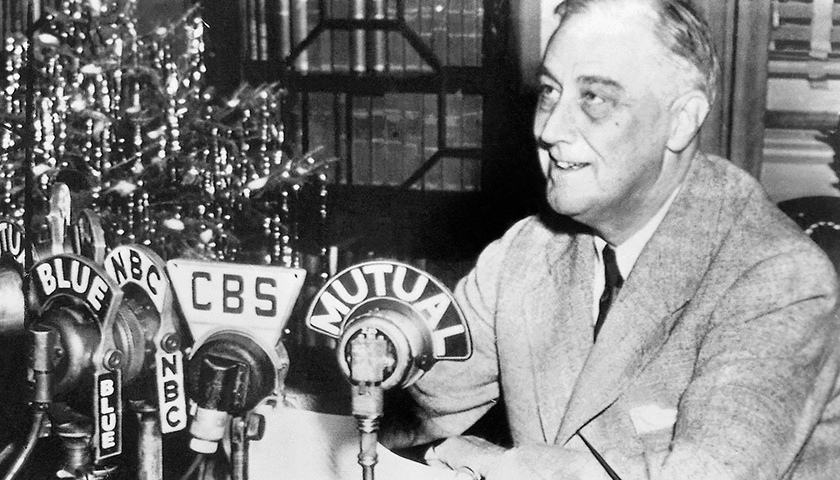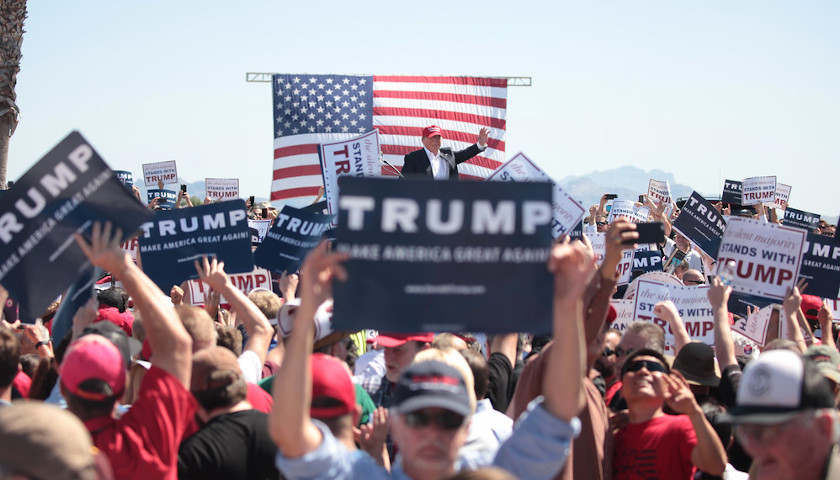Derek Leebaert writes interesting and provocative books. In The Fifty-Year Wound, he assessed the triumphs but also the costs of America’s Cold War victory, which included the growing and seemingly permanent influence in Washington of what President Eisenhower called the “military-industrial complex” and the “scientific-technological elite.” In Magic and Mayhem, Leebaert exposed the intellectual hubris and follies of our national security establishment in launching and fighting wars that we failed to win from Korea to Iraq and Afghanistan. Now, Leebaert in Unlikely Heroes, provides complex portraits of President Franklin Roosevelt and arguably his most important and influential New Dealers — Harry Hopkins, Harold Ickes, Frances Perkins, and Henry Wallace. It is a book that further undermines the conventional wisdom that Franklin Roosevelt was a great president.
Read MoreTag: FDR
Commentary: FDR Did Not Create America’s Middle Class
This week I have a question from Ryan who asks about economic development in America. Ryan says,
I was having a discussion with an acquaintance the other day over the causes of the post WW2 economy, more specifically why the middle class grew so large compared to the past and today. My claim was that the war devastated other countries’ industries, forcing other countries to buy from the US. This combined with the return of many men from the military to the workforce was the primary cause.
He claims that while those produced a large GDP, it did not explain why the middle class grew. Instead he advocates that the primary cause was the FDR policies of wealth redistribution, high tax rates, and strong labor unions. As such, he advocates for a return to those policies today.
What would be your perspective on this and where might one go to further research it?
Read MoreCommentary: If Biden Really Wants to Be FDR, He Should Oppose Public Sector Unions
President Joe Biden has made it pretty clear he idolizes Franklin D. Roosevelt (FDR). A painting of #32 hangs in his office, he frequently invokes the former president in his speeches, and the media often draws comparisons between the two progressives.
But as much as Biden seems to draw on FDR’s legacy, his knowledge of his positions seems to have one glaring omission. FDR was opposed to public sector unions.
Public sector unions are having a moment in the spotlight, and not in a good way. Their actions over the past year have incurred ire from all political directions. Many Americans have become aware of the role police unions play in protecting bad apples, blocking popular criminal justice reforms, and preventing transparency as extrajudicial killings and the resulting protests have demanded attention on our justice system.
Commentary: The U.S. Post-Trump Era
These are only the opening days of what is supposedly the post-Trump era, and whether the country has really seen the last politically of Donald Trump is a matter that depends upon Donald Trump. The principal Trump-hate outlets are still pleased to refer to him as “the disgraced former president” but, of course, he has not been disgraced and there is no indication that he will be.
All of the Democrats and about a third of Republican officeholders are engaged in an elaborate and strictly observed pretense that Trump was a freakish and horrifying interruption of the normal, serene, bipartisan devolution of events in Washington. Like a dreadful meteor, he came and he went, pushed into the instantly forgotten past by a united effort of civilized Americans.
Read More


